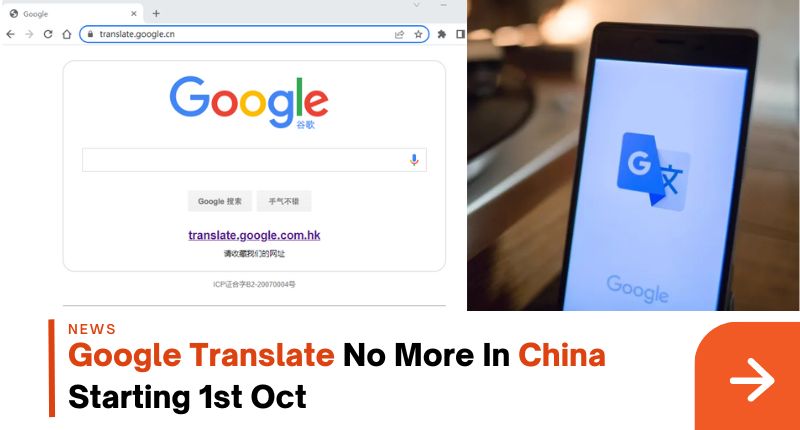Google Translate, one of the few consumers services the U.S. tech giant offers in mainland China, is no longer available in the country, marking the company's latest exit from the world's largest internet market with tens of millions of users.
Google Claimed Google Translate Has Low Usage in China

Users in mainland China have been unable to access the app since Saturday. They have been redirected to a generic search bar with a notice asking users to bookmark the service's Hong Kong page, which is also inaccessible on the mainland.
Google Chrome's built-in translation feature also doesn't work in China, according to various user posts on Chinese social media.
TechCrunch first reported on the move to stop providing Google Translate in China. Google told the AOL news site that the app's withdrawal was “due to low usage” on the mainland.
Google did not immediately respond to a request for comment on Sunday.
While many Chinese tech companies offer a range of translation services, the Google Translate app has a huge user base in China. The Chinese-language Google Translate website recorded 53.5 million visits from desktop and mobile users in August, according to web analytics platform Similarweb.
The move to stop Google Translate on the mainland reflects the U.S. tech giant's complicated history with the Chinese government.
#Google appears to have disabled Google #Translate in parts of #China
— CK's Technology News (@CKsTechNews) October 1, 2022
No one knows why but people speculate maybe because of National Congress of the Chinese Communist Partyhttps://t.co/8hUpt5YCjK pic.twitter.com/0cB6ZZaX0Q
Google announced its withdrawal from mainland China in January 2010, citing targeted cyberattacks from China and a conflict with Beijing over tightening control of speech online. The Chinese government then blocked Google's services in the mainland.
But in March 2017, Google Translate was relaunched on the mainland after a lapse of seven years, without much fanfare. Google's comeback in China had been widely speculated the year before.
On Chinese social media over the weekend, users bemoaned the disappearance of Google Translate. “You can't use this, you can't use that, you have to read foreign documents every day,” one user wrote on Zhihu, a Chinese question-and-answer site, expressing his concern.
Google has made several attempts to revive its operations in the mainland, but has been operating modestly outside its core search engine business. These include developer services, support for Chinese companies to advertise online overseas and the storage management app Files Go.
In July 2018, Google launched a small game, which immediately became popular on Tencent Holdings’ super app WeChat. The previous month, Google invested $550 million in Chinese e-commerce giant JD.com.
In December of that year, Google CEO Sundar Pichai told a U.S. congressional panel that the company had “no plans” to relaunch the search engine in China, although it was continuing to work on the idea.
That quelled speculation that flourished in August 2018 that Google planned to launch a censored version of its search engine in China, blacklisting sites on human rights, democracy, religion and other issues the Chinese government considers sensitive.

